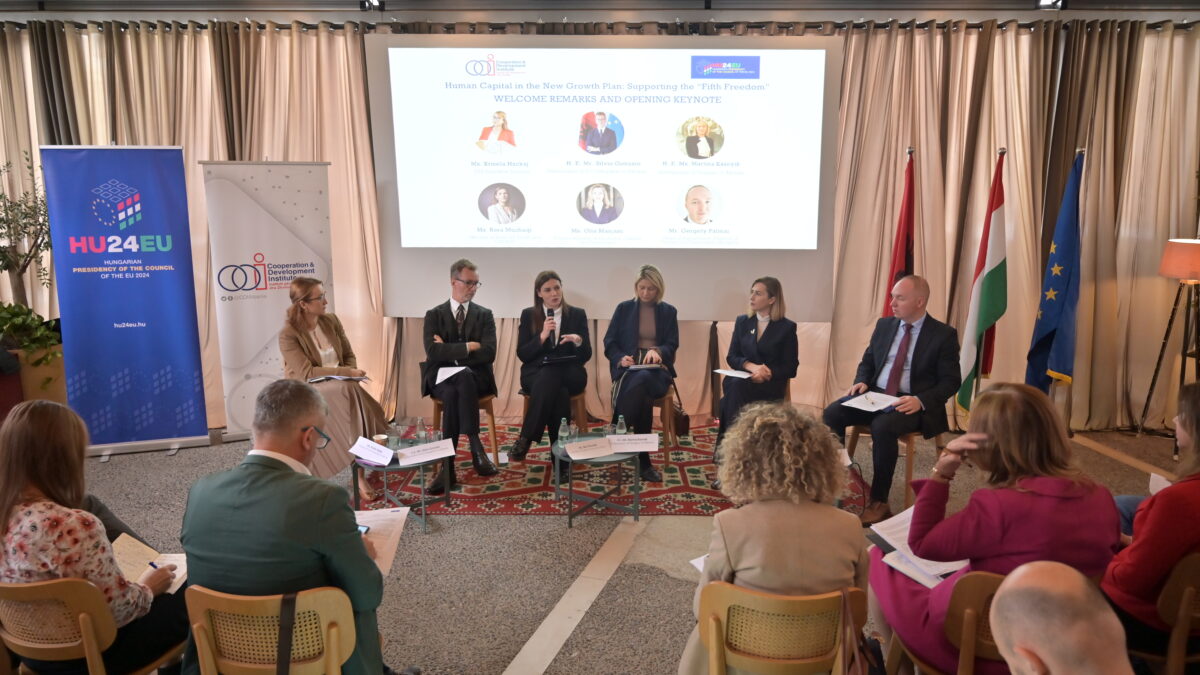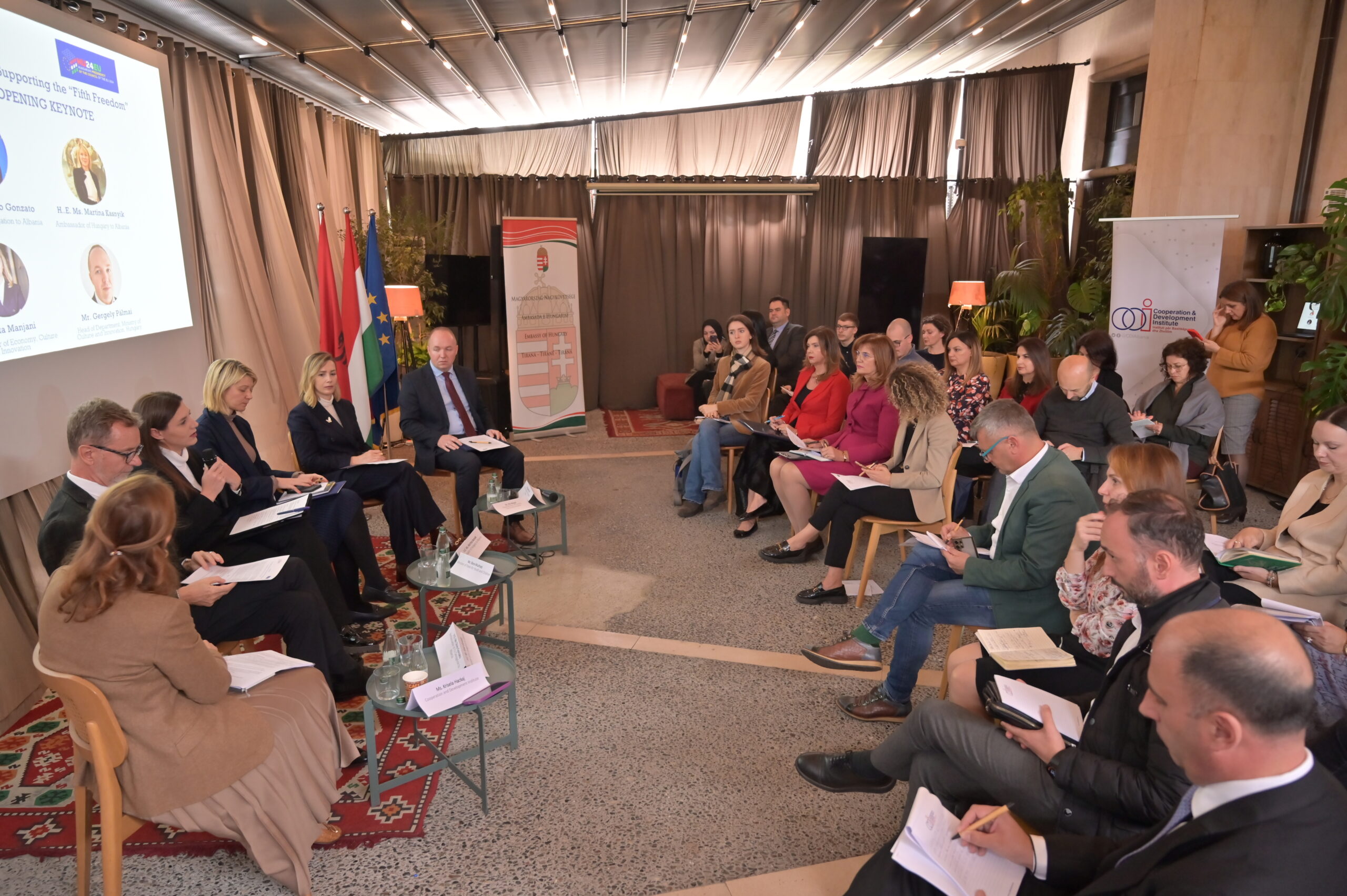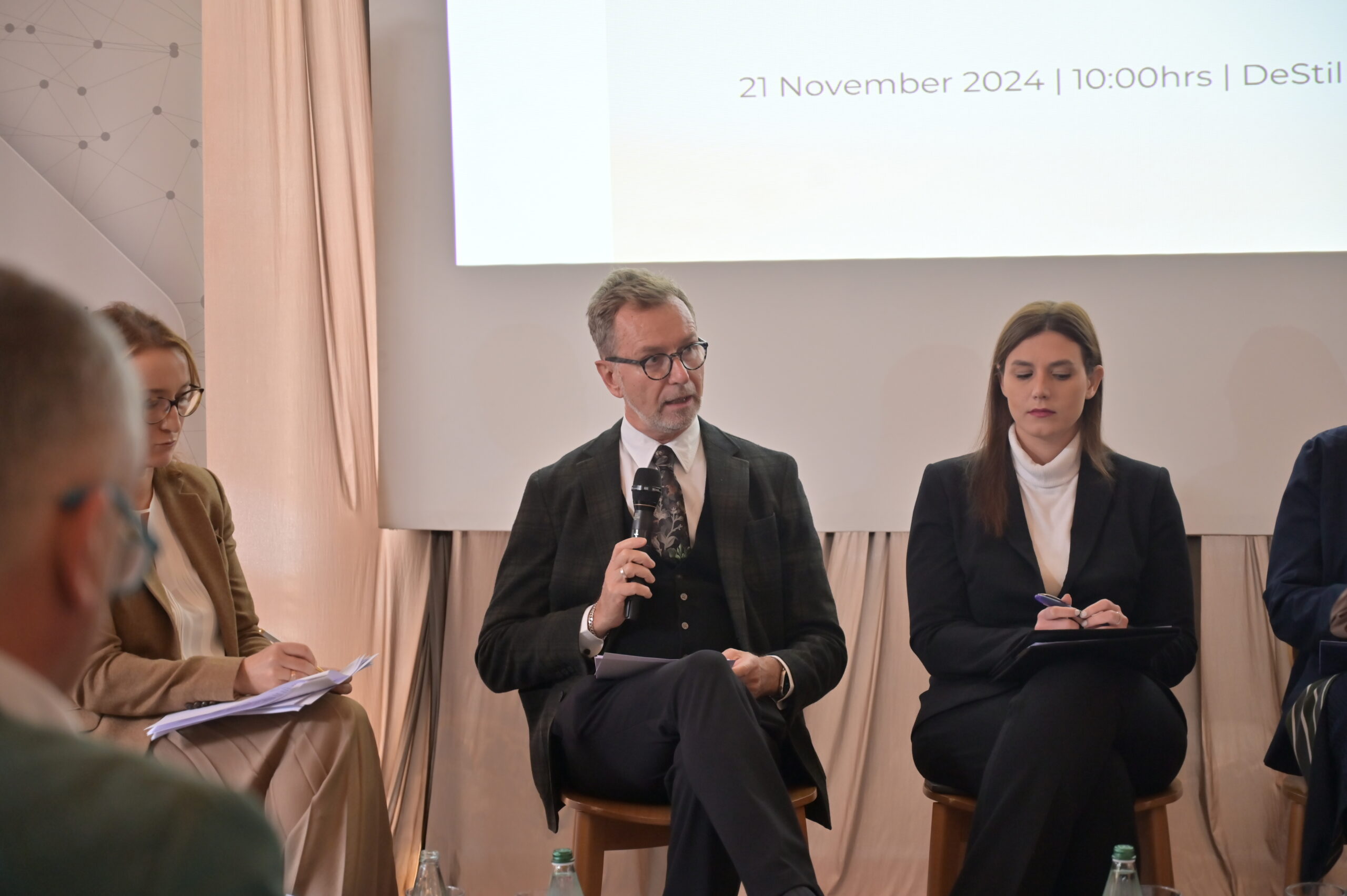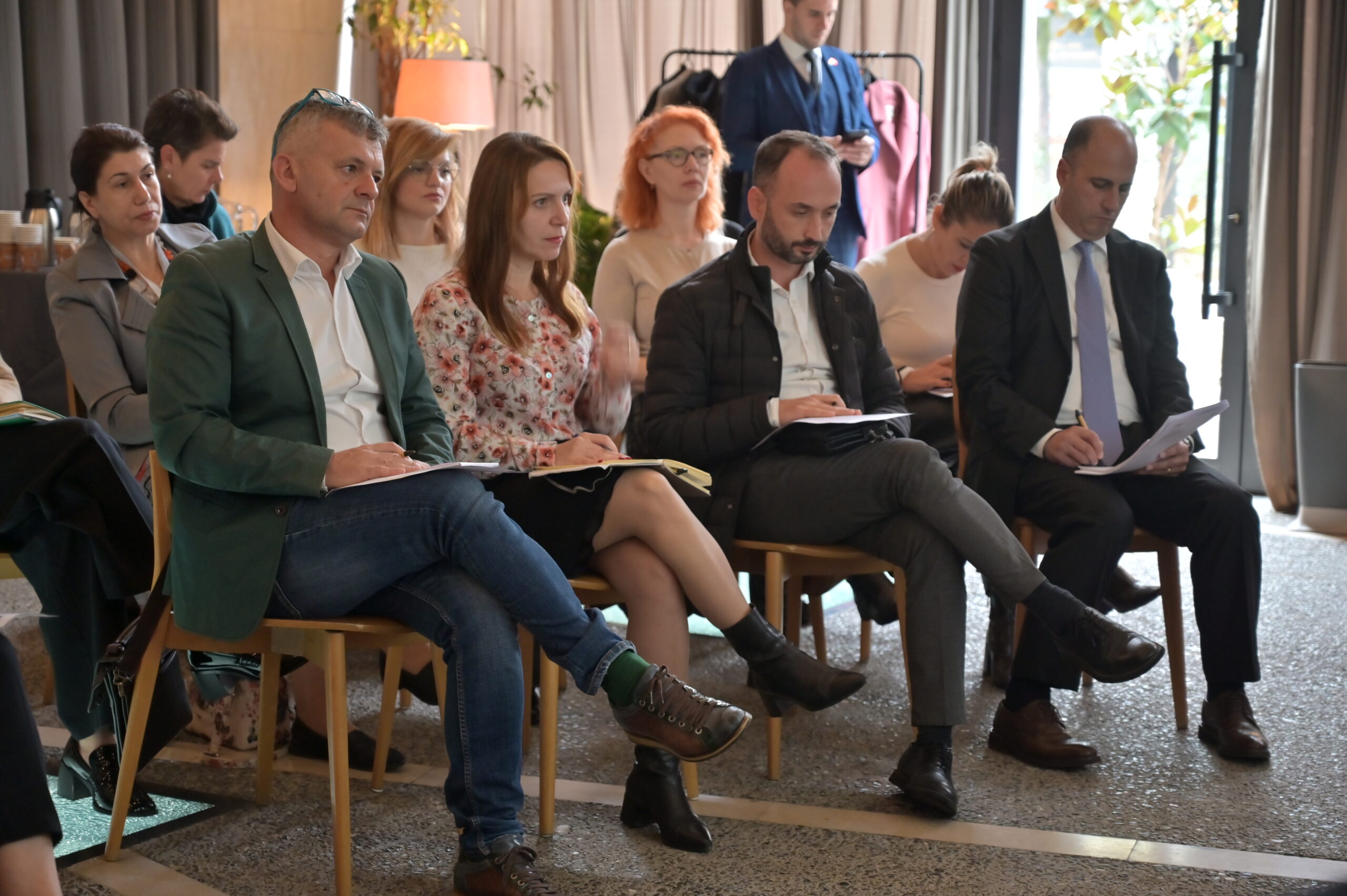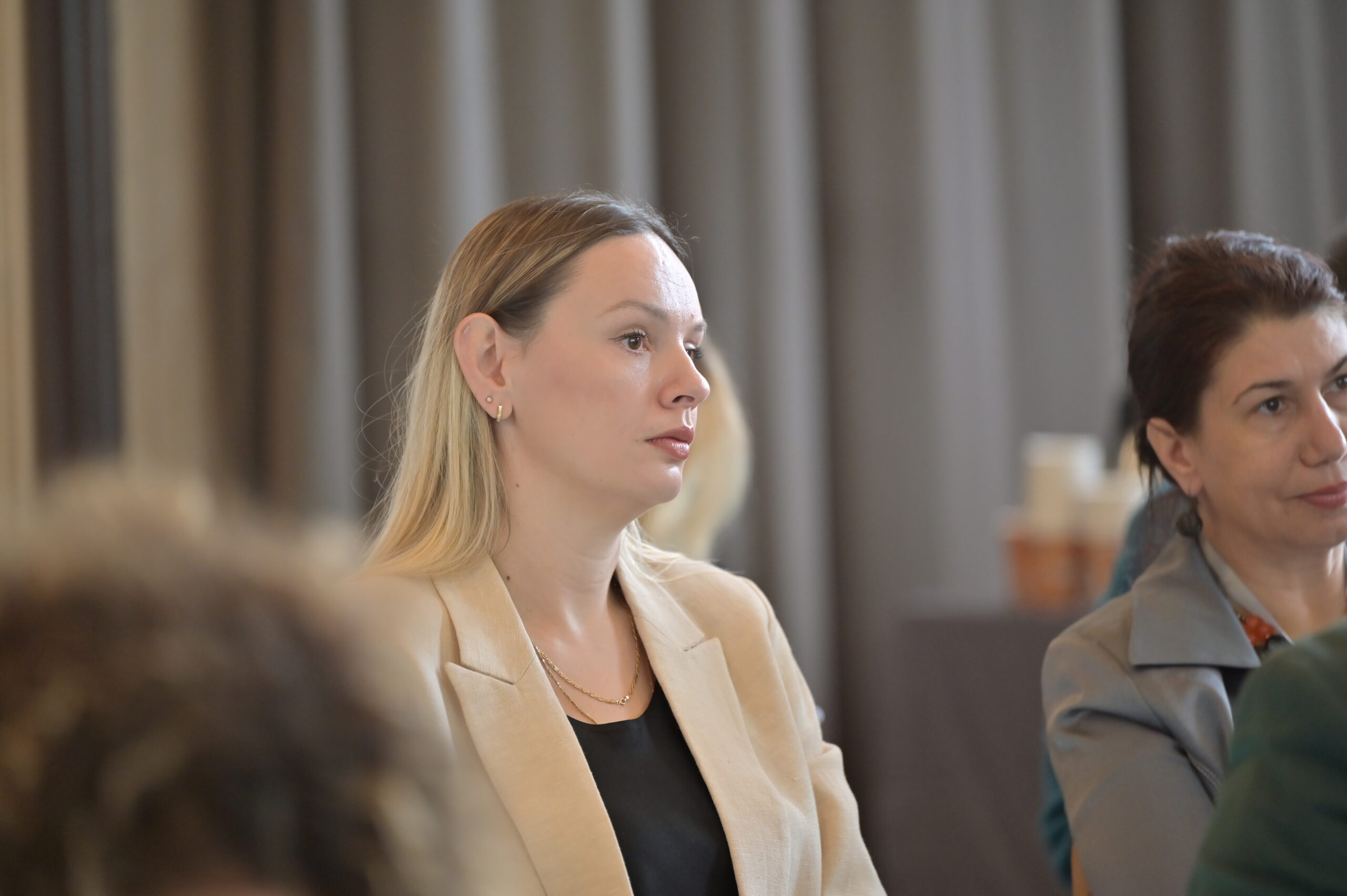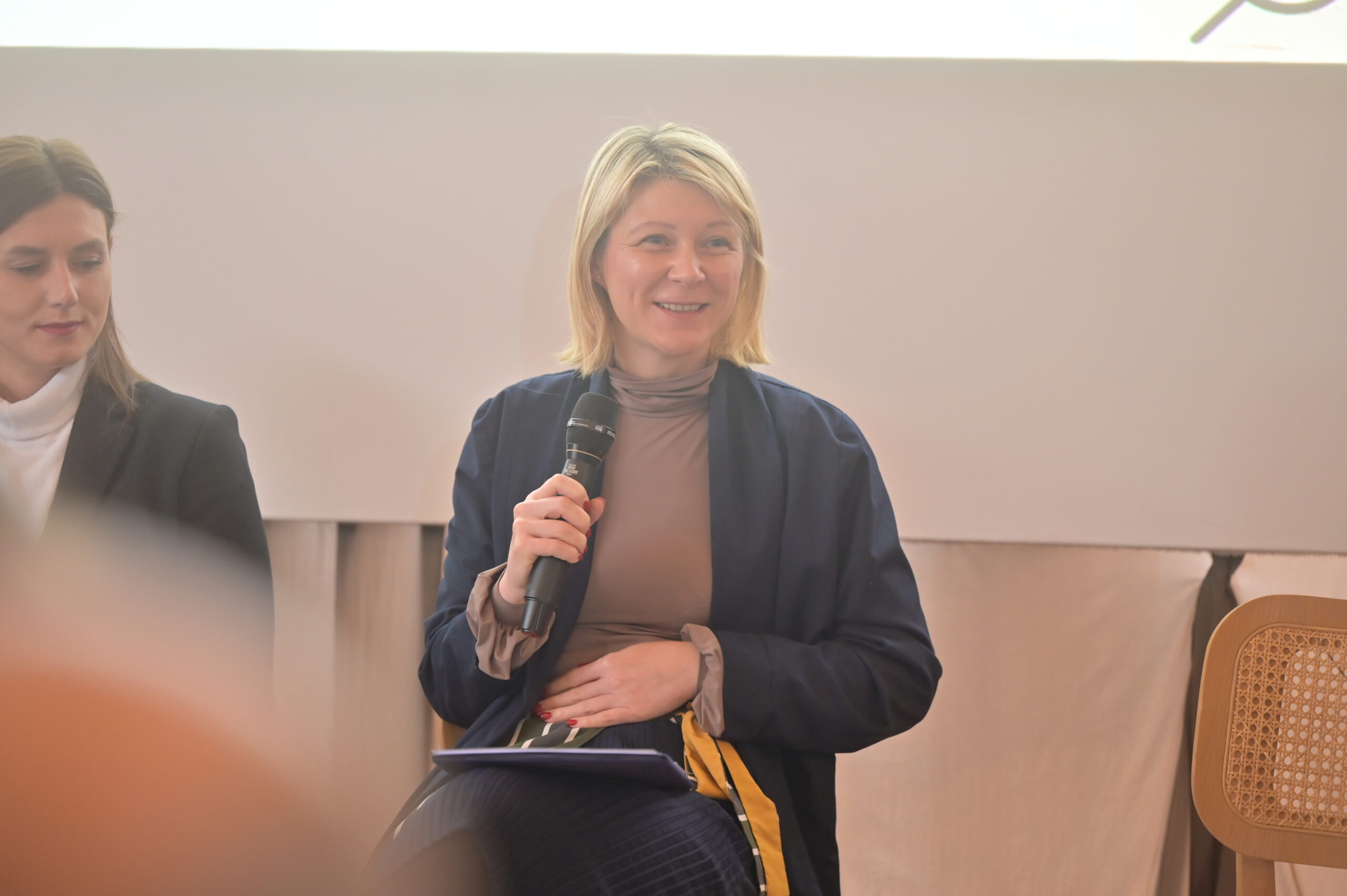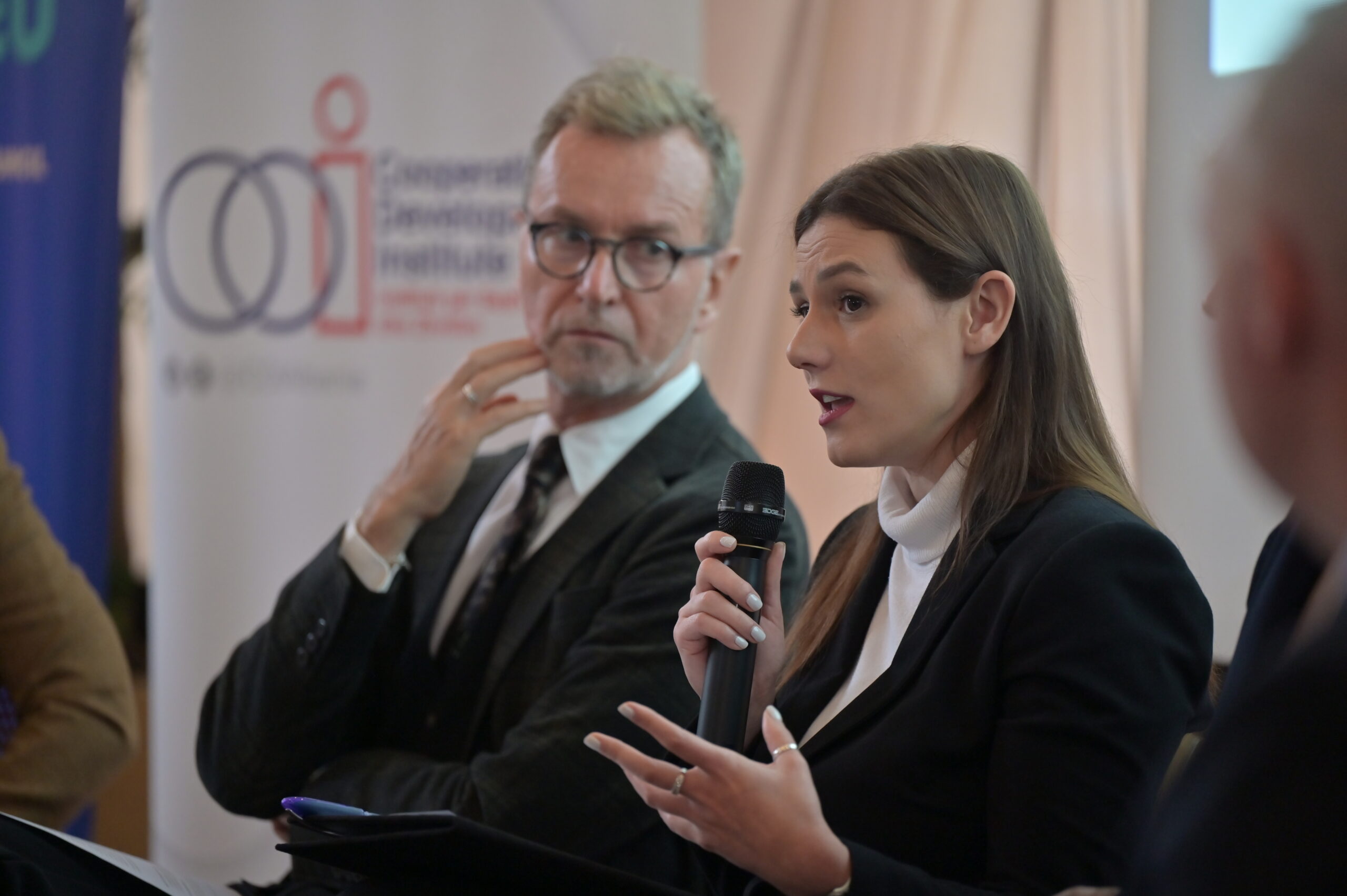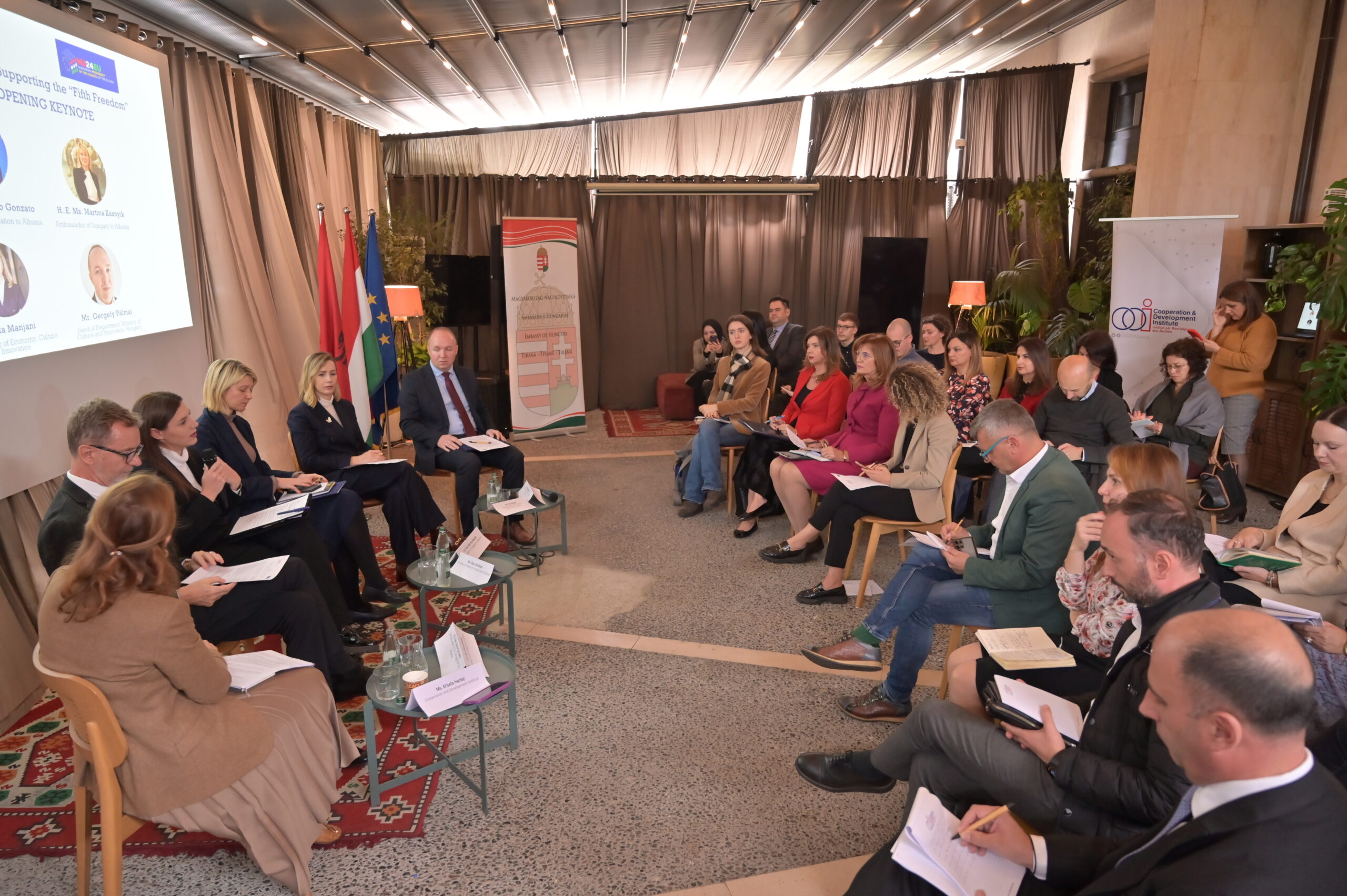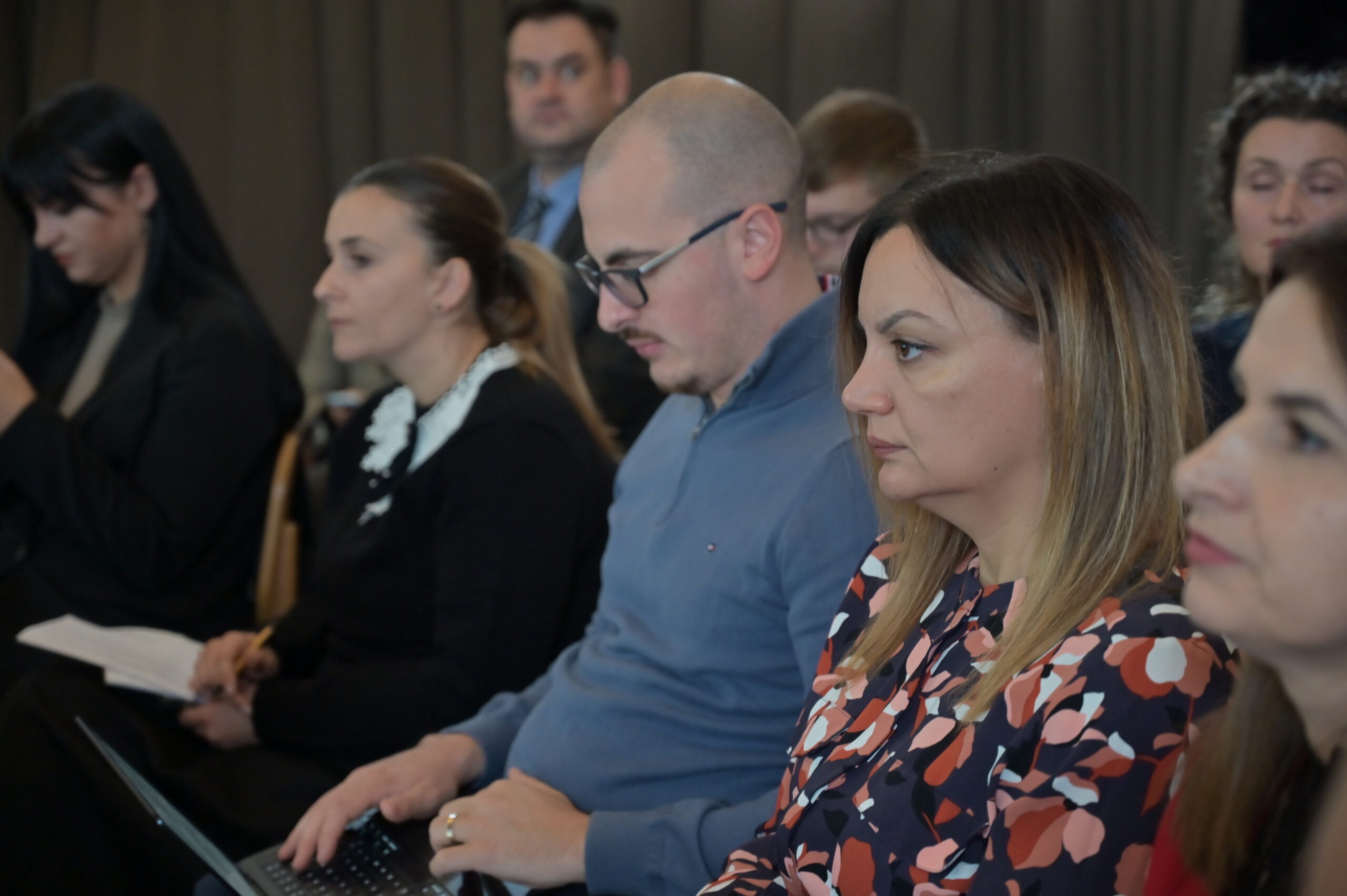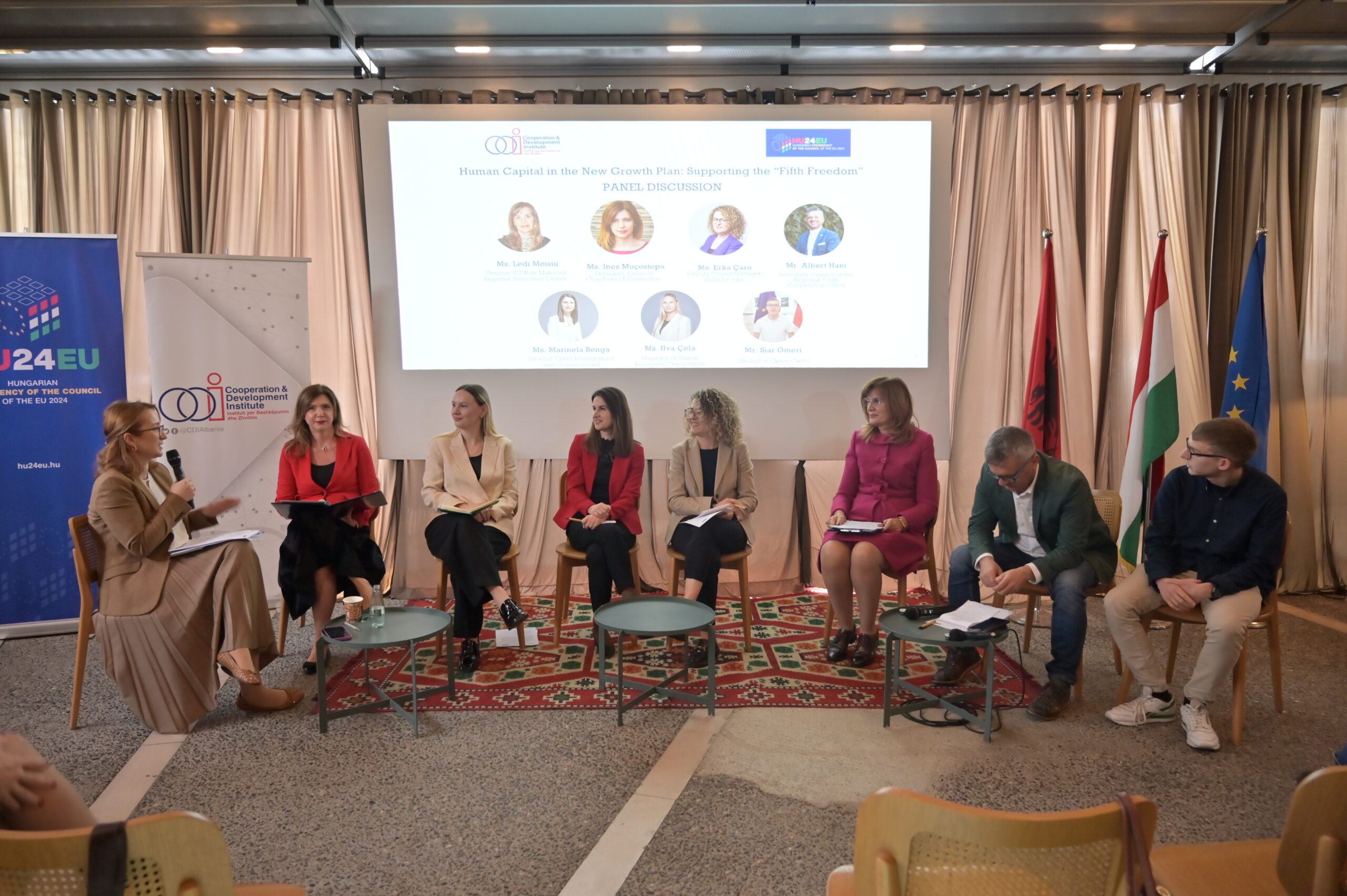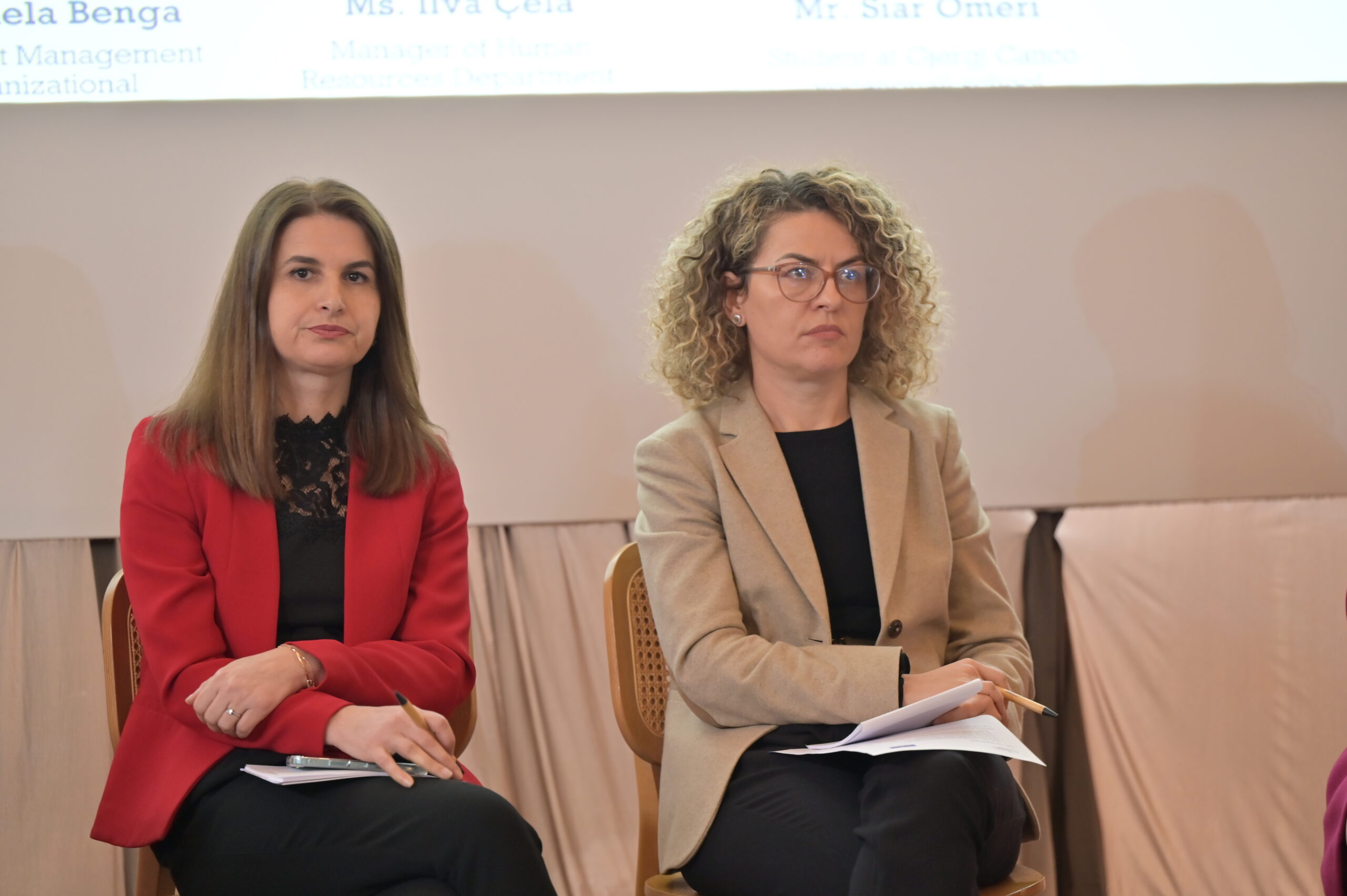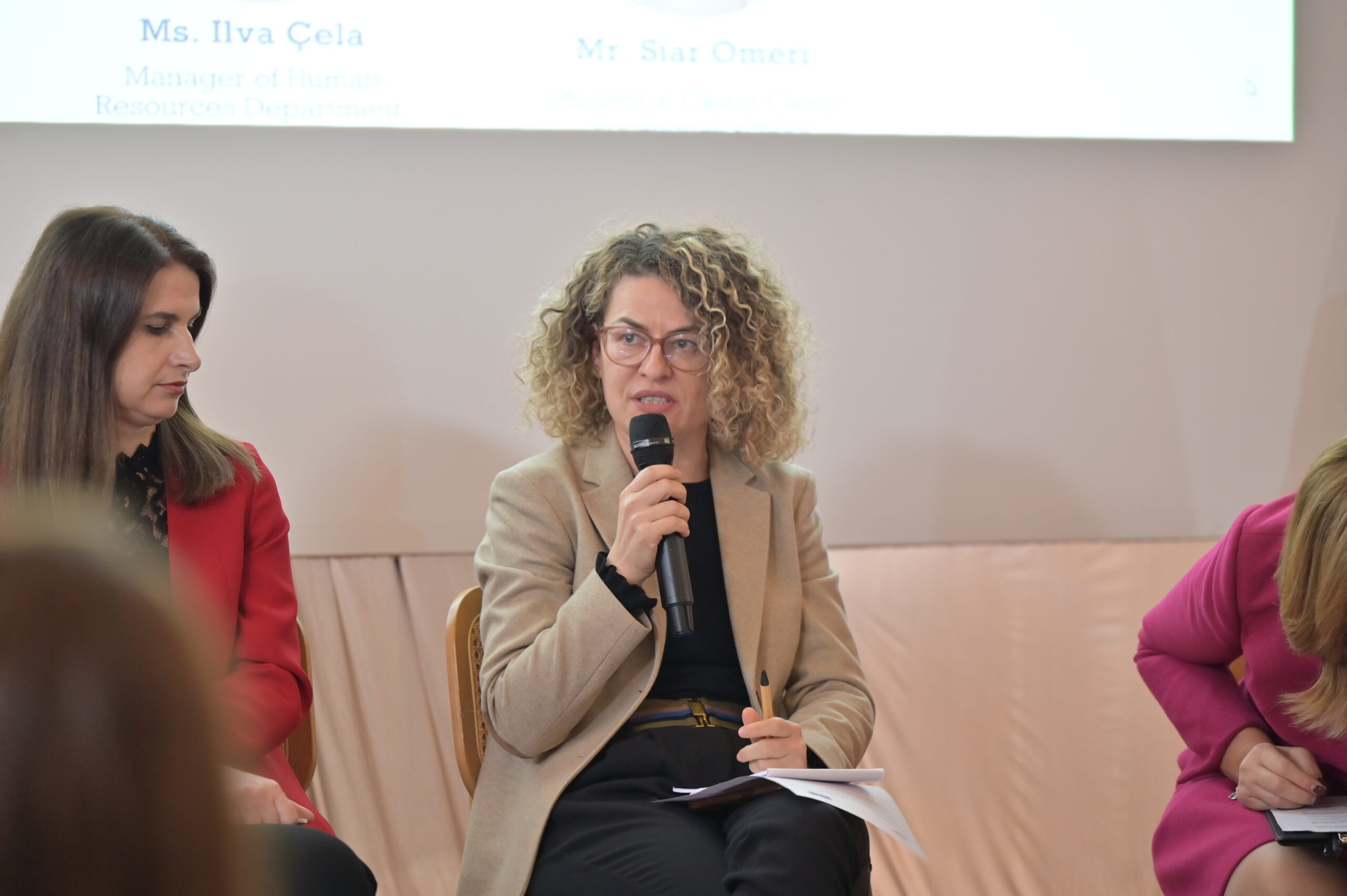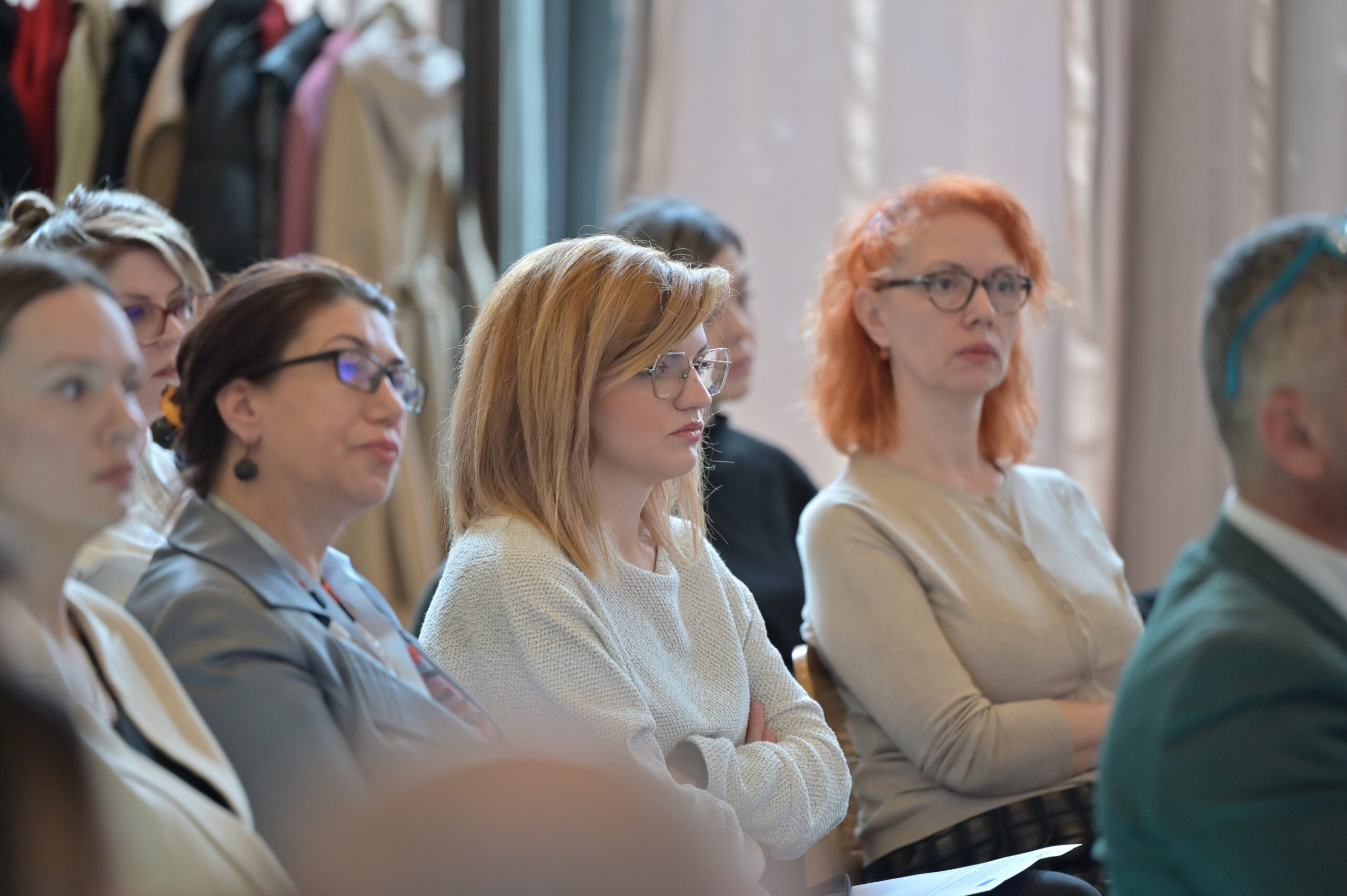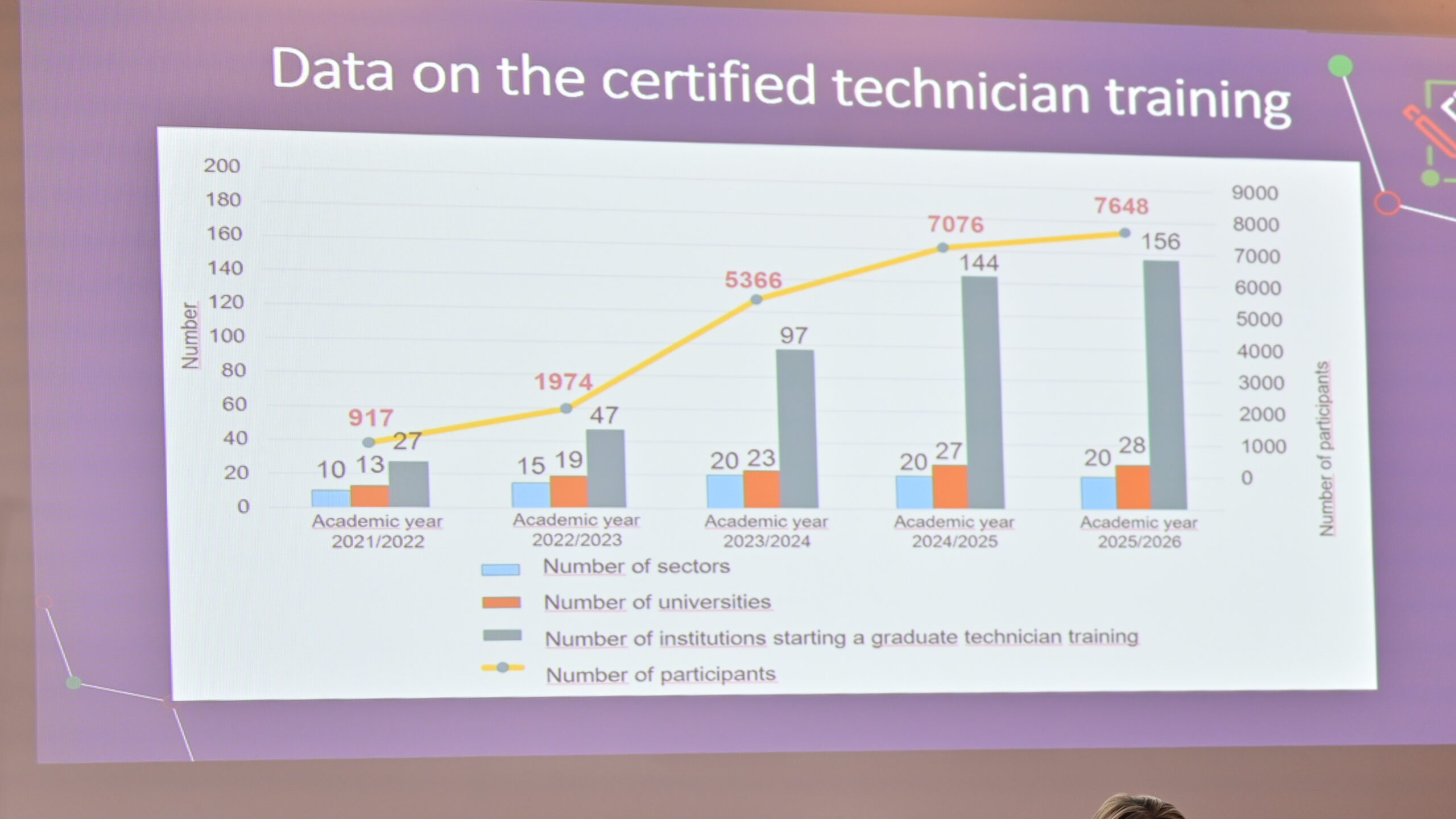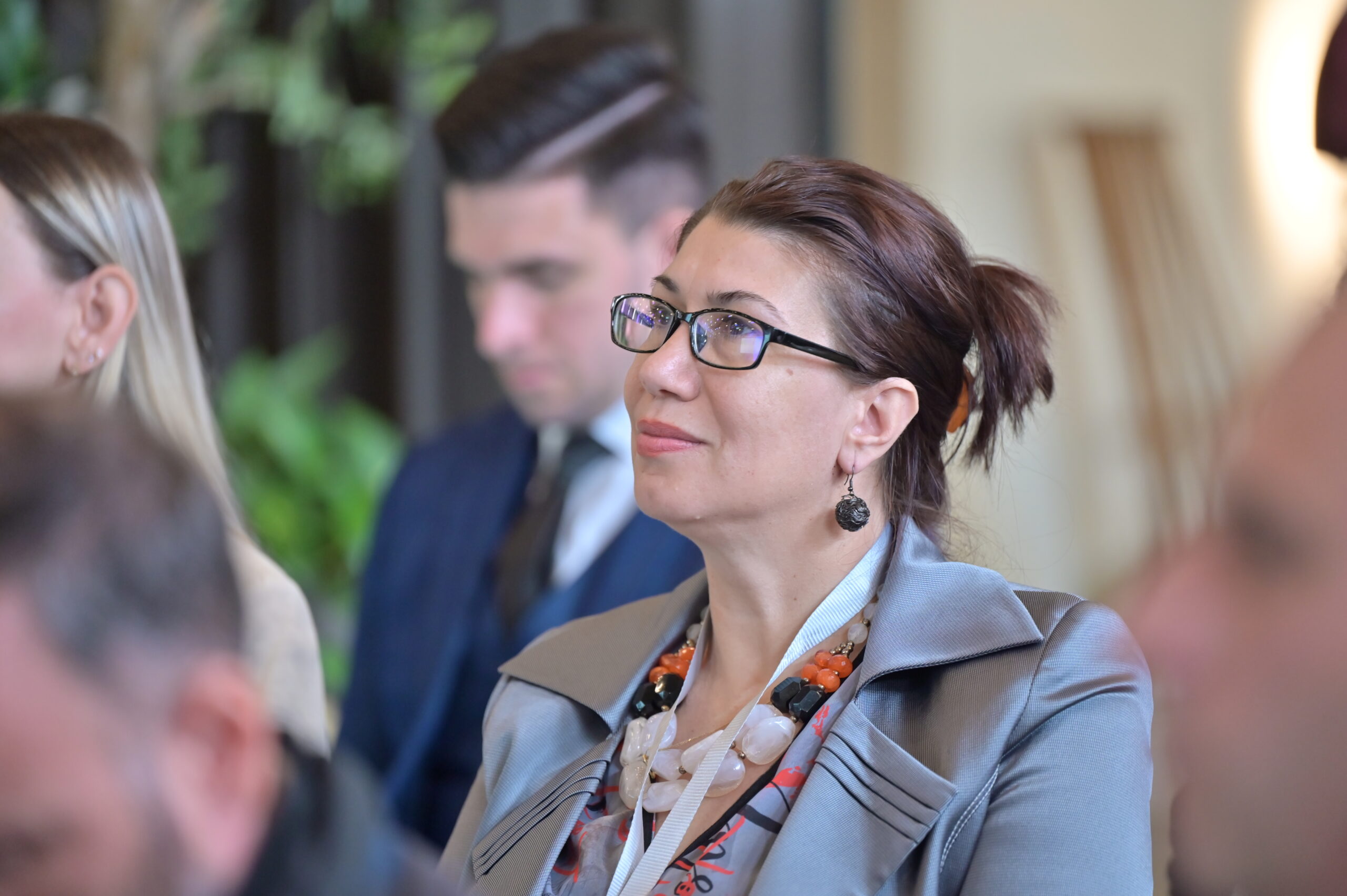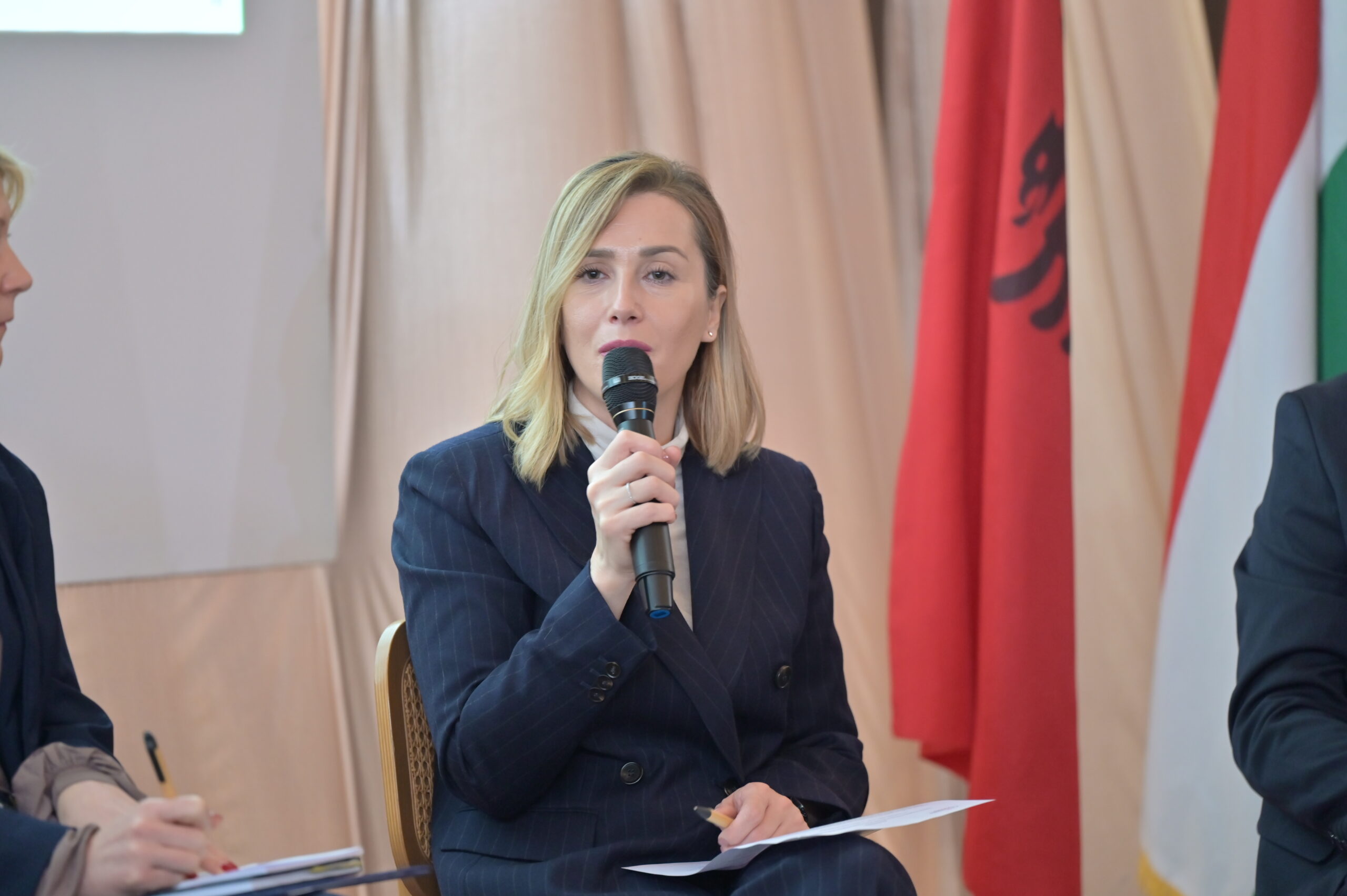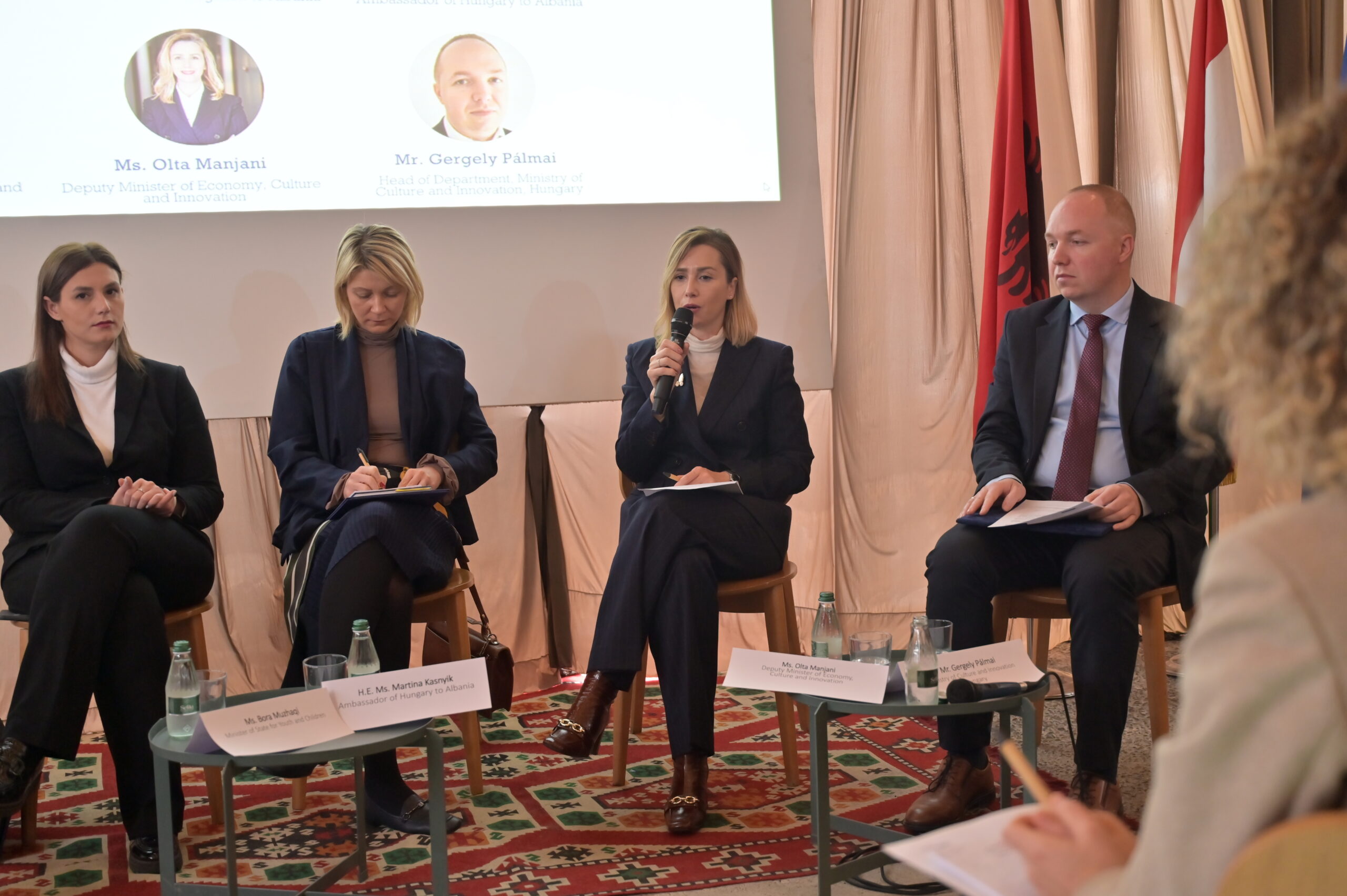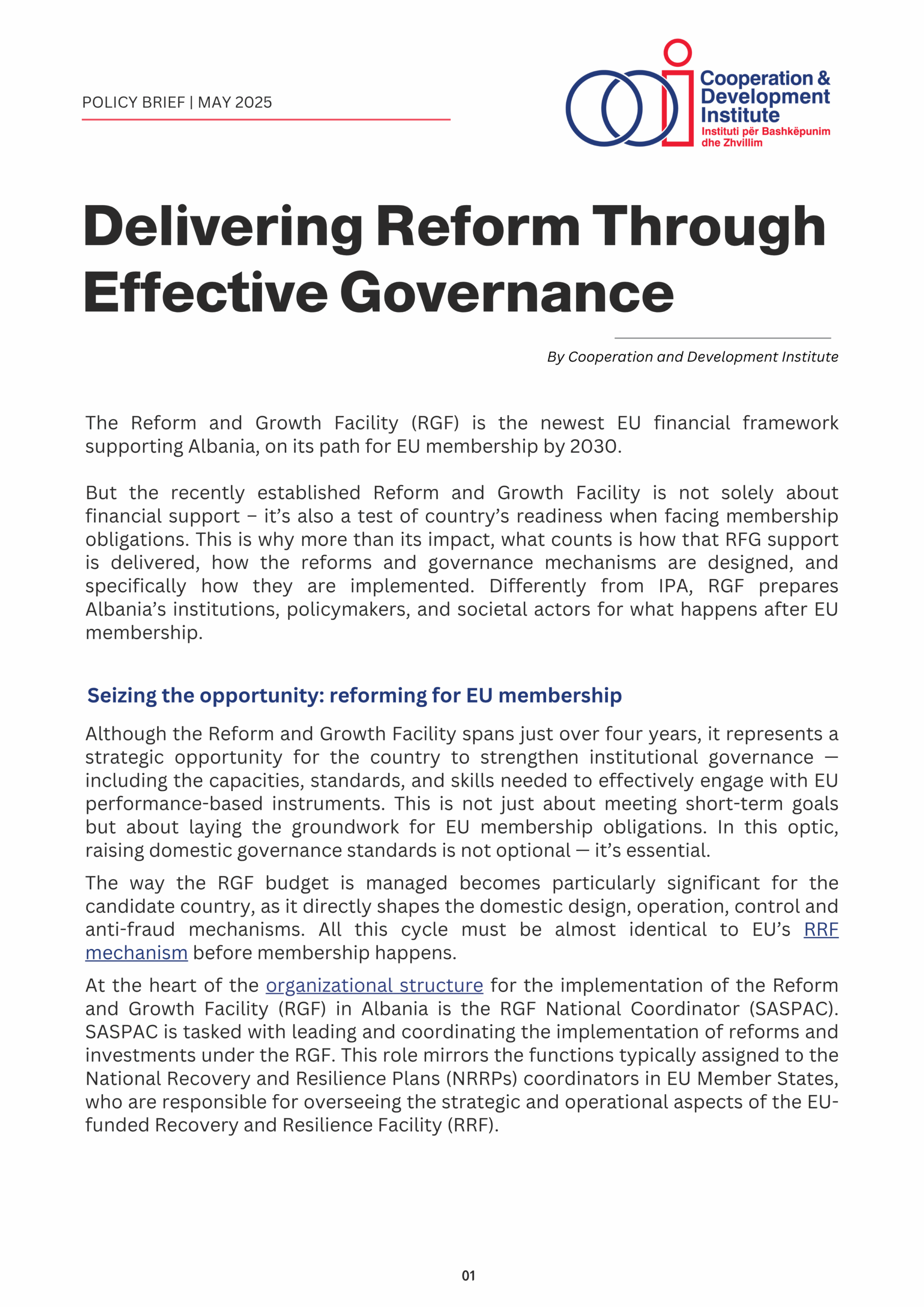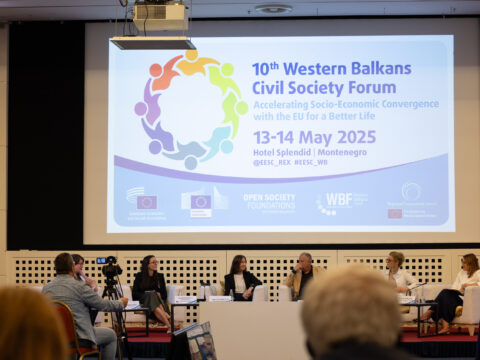A competitive Albania hinges on a workforce equipped with the right skills and knowledge, making the alignment of education and training systems with labor market needs a top priority. In this context, ongoing Human Capital reforms include a comprehensive overhaul of Albania’s Vocational Education and Training (VET) system to better align skills development with market demands.
To explore these topics and the role of the EU’s Growth Plan in supporting human capital development, the Cooperation and Development Institute, in collaboration with the Hungarian Presidency of the EU Council and the Hungarian Embassy in Tirana, convened key Albanian stakeholders committed to enhancing opportunities that empower Albanians to stay in their country.
This event shed light on the main reforms on education, innovation and labour market, which are at the heart of the reforms making Albania fit for the EU Membership. The Growth Plan for Albania outlines in fact a comprehensive reform agenda aimed at investing in human capital development. The main initiatives focus on updating VET and basic education curricula, providing specialized teacher training in digital and green skills, and advancing inclusive education and career guidance. The European Union is actively supporting these efforts by upgrading school infrastructure, developing new vocational programs, and enhancing teacher training to close the digital skills gap. The EU Ambassador to Albania, Silvio Gonzato, emphasized that the Growth Plan for the Western Balkans integrates these efforts, accelerating Albania’s EU integration process while improving citizens’ quality of life through better education, job opportunities, and higher wages.
Earlier this month, under the Hungarian Presidency of the European Council, the Budapest Declaration on the New European Competitiveness Deal was adopted. This declaration highlights the EU’s commitment to advancing research, innovation, and education within the Single Market. Speaking on behalf of the Hungarian Presidency, Ambassador Martina Kasnyik underscored that Presidency’s priorities such as competitiveness, demography or the merit-based enlargement process and the stronger alignment of the Western Balkans to the EU standards are all connected directly or indirectly to human capital development and youth employment.
Looking ahead, Albania is making significant strides in implementing youth-focused initiatives to attract and empower young people. Minister of State for Youth and Children, Bora Muzhaqi, highlighted key programs: the Talents Program, supporting young Albanians in international competitions; the Community Initiatives Program, enabling youth to lead transformative local projects, and the National Internship Program, offering stipends and training for 600 participants annually, focusing on digital and interpersonal skills.
Deputy Minister of Economy, Culture, and Innovation, Olta Manjani, highlighted the significance of the Youth Guarantee scheme, which has been extended through the end of 2024 to benefit over 500 young people, up from the initial 200. The next phase will focus on expanding territorial eligibility to include the entire country.
With VET being a cornerstone of Hungary’s educational priorities, Mr. Gergely Pálmai from the Hungarian Ministry of Culture and Innovation, shared key insights on the country’s VET principles and functioning. At the national level, 51.9% of VET students are fully integrated into the labor market within 1 year and 27.3% work and study at the same time thus proving the efficiency of the dual-training approach
During the panel discussion, representatives from the Union of Chambers of Commerce, EIT Raw Materials Regional Innovation Center, the ‘Skills for Jobs’ project, OTP Bank Albania, ONE Mobile, the Regional Youth Cooperation Office, and a student from Gjergj Canco Vocational School shared a wide range of perspectives and experiences. A common theme among their contributions was the collaborative efforts of public and private actors to develop a stronger, more dynamic workforce aligned with European standards. They emphasized the importance of investing in both technical and soft skills, such as ethics, communication, and analytical abilities. Additionally, the railway and mining sectors were highlighted as key areas requiring educated and trained youth to build a skilled and professional workforce critical to the country’s economic priorities.



